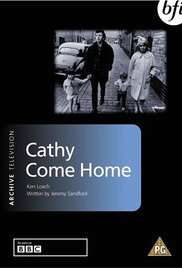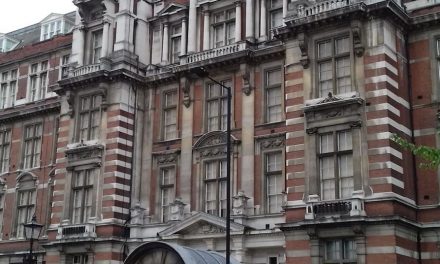
Ken Loach is surely the patron saint of British film and television studies – venerated for his early work with Tony Garnett and others for making British television drama a national event (fig 1); admired for the prizes (and finance) he has won in Europe; and respected for the way he continues to make films in his own way and following his own conscience into his eighties. And of course when he is attacked by the press or Conservative ministers, as he has been recently over I, Daniel Blake, we would all come to his defence.
Which is why it is beyond irritating when he makes remarks about British television drama and the BBC which are at the very least thoughtless and at worst ignorant. The press and social media recirculated the gobbets prompted by an interview he gave the Radio Times in mid-October (‘Ken Loach brands the BBC ‘manipulative’ and a ‘rotten place’ for directors’ (Express); ‘Cathy Come Home director calls for corporation to democratise and says ‘bad history’ dramas such as Downton Abbey put viewers’ brains to sleep’ (Guardian)) In some ways the attack on television drama was a bit of an aside since Loach may have thought his comments on BBC news were more important. But reading his views on drama I wondered (as I do quite often when Tory MPs let fly) whether Loach watches much television at all. So here are some thoughts prompted by this minor yet significant stooshie. I’ve referenced the comments but the Express, Guardian and Telegraph all had much the same quotes.
BBC Production
‘Describing how directors now face different challenges to the ones he tackled, Ken blasted the amount of dramas now produced away from the BBC, and complained about interfering bosses. “Now the drama is produced by outside production companies and [is] horribly micro-managed,” he continued.’ (Express)
Well, perhaps Loach might have noted that this outsourcing has come about in the name of competition and through decisions taken by successive governments while being heavily lobbied by the TV Indies. I don’t understand the full implications of Tony Hall’s further moves to ‘privatise’ production but the impetus has surely not been from the BBC but from those who believe in competition as a driver for quality.
The micro-managing Loach refers to is a product of the commissioning model, initially a feature of Channel 4 and now much more widely adopted and again more or less forced on the BBC as part of the shift to outside production. Loach (who is not quoting from his personal experience) might want to think about why the BBC apparently overdoes it. In part, it seems to be down to a version of transparency and accountability to the viewers who pay the licence fee. And in part, it could be down to the constant state of anxiety engendered by the criticism which erupts when things apparently go wrong.
Period Drama
‘Ken Loach: Bad TV drama leaves viewers wallowing in nostalgia . . . too much drama showed a “rosy vision of the past”, encouraging audiences to “put your brain to sleep”. . . The BBC is a “rotten place” for a director, Ken Loach has warned, as he argues television is wallowing in “fake nostalgia” which fails to tackle the issues of today.’ (Telegraph)
Loach was offered Downton Abbey (2010-15) to get his teeth into and seems to have responded with glee. It would be nice if he had acknowledged that there can be differences between different kinds of drama set in the past; he has after all made period dramas himself. Perhaps he could have ascribed Downton Abbey’s (addictive) awfulness to the writing of the Conservative peer Lord Fellowes rather than the genre as a whole. He might even have acknowledged that in this case the BBC did try and do something different on a Sunday night by screening two series of The Village (2013-14), conceived and written by Peter Moffat with episodes directed by Antonia Bird and Gillies MacKinnon. (The Mail of course branded this attempt at a representation of working-class history as a failure during the first episode). Instead Loach just continued to generalise: ‘”TV drama is like the picture on the Quality Street tin, but with less quality and nothing of the street.”’

Democracy and Diversity
‘On the question of what should be done with the BBC, Loach said: “Democratise it. Diversify it so that different regions can make their own dramas to “democratise” the corporation.’ (Telegraph)
I would certainly agree that British television has suffered from the increasing dominance of London across all channels and the dissolution of the ITV regional companies. It seems to me that the move to Salford is generating some changes for the BBC and will continue to do so as people and programmes become more established there. And in dramas like Happy Valley (2013-) have a strong sense of place not because of their locations but because of their whole production set-up.

Loach’s suggestion of more democracy is interesting and in the recent consultation over charter renewal Co-operative Party called for a reformed Trust ‘with a majority-elected membership, in which all licence fee holders are given a stake in the Corporation.’ (See https://party.coop/2015/10/08/submission-to-dcms-bbc-charter-review-consultation/) But there’s no evidence here that Loach has given any thought to what his form of democracy for the BBC would mean: how would money be parcelled out?; would different regions be expected to make dramas only about their area by people from that area?; how would viewers be allowed to express their views and supposing they voted for more Downton Abbey? And Loach doesn’t begin to comment on the massive changes in the television landscape which the BBC is struggling with, the inroads being made by Amazon and Netflix and the internationalisation of television along the lines of blockbuster cinema.
More could be said but the end result of Loach’s comments, intentionally or not, is more grist to the mill for the BBC enemies. I wondered whether Loach was satisfied with his intervention or pleased at the way his remarks had been used for another bout of BBC bashing. It is true that it is sometimes very hard to defend the BBC. And it may be already too late. Like the NHS (which Loach passionately argues for), the BBC is fast becoming a hollowed-out version of a public service which is in danger of collapsing altogether. Surely that is something Loach might consider defending. In the meantime, I’m off to watch Days of Hope (1975).
Christine Geraghty is an Honorary Professorial Fellow at the University of Glasgow. Her publications on television include a contribution to the 1981 BFI monograph on Coronation Street; Women and Soap Opera (Polity, 1991); and My Beautiful Laundrette (I B Taurus, 2004). Her BFI TV Classic on Bleak House was published in 2012 and her reflections on the beginning of her work on soap opera appears in ‘The BFI women and film study group 1976 – ?’, Renewing Feminisms, Radical Narratives, Fantasies and Futures in Media Studies H. Thornham and E. Weissmann (eds) I B Taurus 2013. She is on the editorial board of the Journal of British Cinema and Television and sits on the advisory boards of a number of journals, including Screen.
References:
https://theguardian.com/media/2016/oct/18/ken-loach-bbc-news-manipulative-and-deeply-political
I wondered why the Mail didn’t join in this but discovered that on the same day it was taking the opposite tack of using Loach to smear Corbyn





